Outsourcing Labor in Uruguay
a Comparative Study of Rural Labor and Machinery Contractors
DOI:
https://doi.org/10.31285/AGRO.17.485Keywords:
rural contractors, labor outsourcing, sheep-shearing, forestryAbstract
Due to the seasonal nature of most agricultural activities, there is a strong demand for labor and/or machinery in a limited and brief period of time. To address these needs, rural entrepreneurs implemented the outsourcing of machinery and labor, as a strategy for profit maximization, seeking to facilitate the management of workforce: providing themselves with it, training it, organizing it, and disciplining it in order to make it pay. This outsourcing process is mediated by the figure of the labor contractor. In Uruguay labor contractors existed since the beginnings of stockbreeding, it was the way labor organization developed with the shearing along the twentieth century, bringing together workers along the «gang foreman» first and the «shearing machinist» after, constituting what is now known as «labor contractors». The recent decades we witnessed a significant development of outsourcing in light of the processes of labor flexibility and deregulation of the labor force. In this regard forestry has developed forms of labor organization based on the outsourcing of various tasks of the production process. In this context the role of the «machinery contractor» becomes stronger. This entrepreneur gets service contracts with forestry and/or agricultural companies to develop the activities connected to the crops, using a substantial fleet of machinery operated by specialized wage employees to carry out the tasks mentioned.This paper tries to explore whether these intermediaries –labor-contractors and machinery contractors– are different social subjects (by their function, conformation, etc.) or if it is essentially the same social actor located in different contexts. Knowledge of the social actor is central for a better understanding of rural labor markets.
Downloads
Downloads
Published
How to Cite
Issue
Section
License
Copyright (c) 2020 Agrociencia Uruguay

This work is licensed under a Creative Commons Attribution 4.0 International License.
| Article metrics | |
|---|---|
| Abstract views | |
| Galley vies | |
| PDF Views | |
| HTML views | |
| Other views | |

















